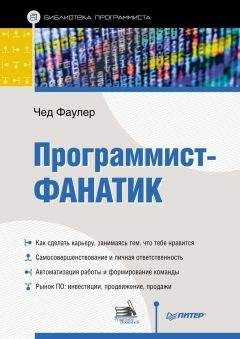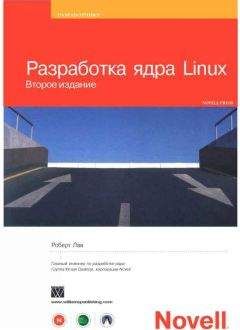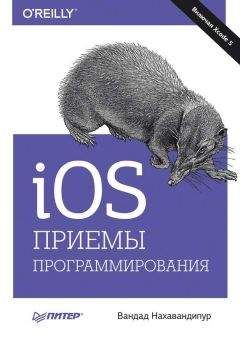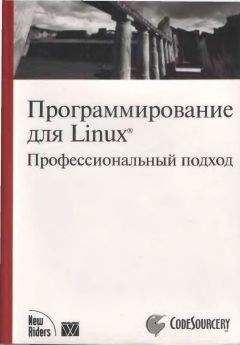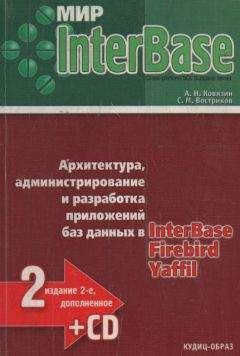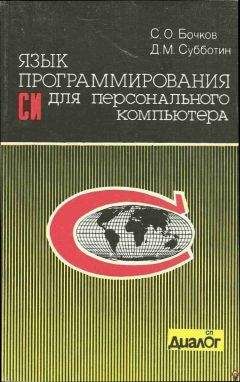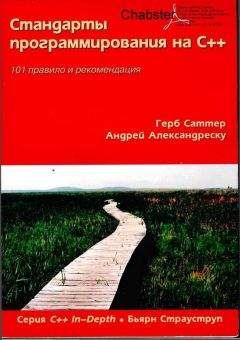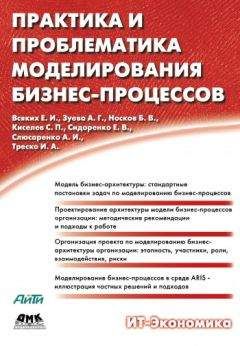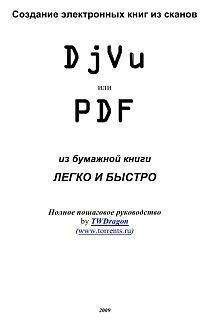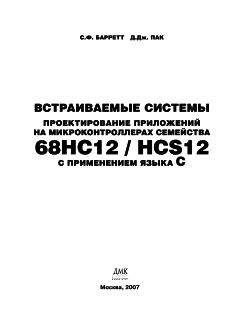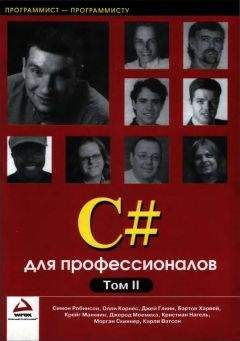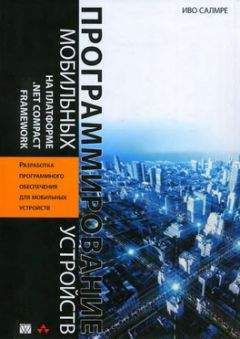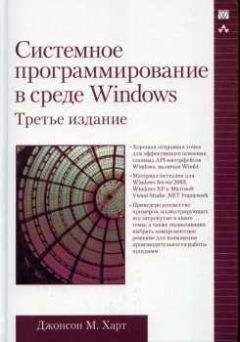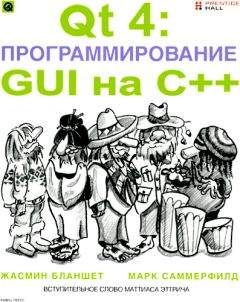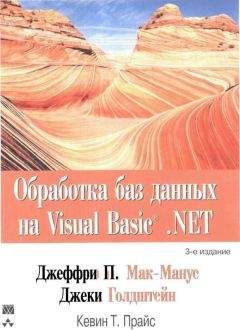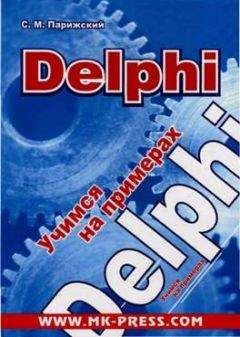Ори Померанц - Энциклопедия разработчика модулей ядра Linux
Скачивание начинается... Если скачивание не началось автоматически, пожалуйста нажмите на эту ссылку.
Жалоба
Напишите нам, и мы в срочном порядке примем меры.
Описание книги "Энциклопедия разработчика модулей ядра Linux"
Описание и краткое содержание "Энциклопедия разработчика модулей ядра Linux" читать бесплатно онлайн.
Linux Kernel Module Programming Guide свободная книга; Вы можете воспроизводить и/или изменять ее в соответствии с версией 2 (или, в вашем случае, любой более поздней версией) GNU General Public License, опубликованной Free Software Foundation. Версия 2 поставляется с этим документом в Приложении E.
Эта книга распространяется в надежде, что будет полезна, но без какой-либо гарантии; даже без подразумеваемой гарантии высокого спроса или пригодности какой-либо для специфической цели.
Автор поощряет широкое распространение этой книги для персонального или коммерческого использования, если вышеупомянутое примечание относительно авторского права остается неповрежденным, и распространитель твердо придерживается условий GNU General Public License (см. Приложение E). Вы можете копировать и распространять эту книгу бесплатно или для получения прибыли. Никакое явное разрешение не требуется от автора для воспроизводства этой книги в любой среде, физической или электронной.
Обратите внимание, производные работы и переводы этого документа должны быть помещены согласно GNU General Public License, и первоначальное примечание относительно авторского права должно остаться неповрежденным. Если Вы пожертвовали новый материал этой книге, Вы должны сделать исходный текст доступным для ваших изменений. Пожалуйста делайте изменения и модификации, доступные непосредственно поддерживающему данный проект Ori Pomerantz. Он объединит модификации и обеспечит непротиворечивость изменений для всего Linux сообщества.
Если Вы планируете издавать и распространять эту книгу коммерчески, пожертвования, лицензионные платежи, и/или напечатанные копии будут высоко оценены автором и Linux Documentation Project (LDP). Содействие таким образом показывает вашу поддержку свободного программного обеспечения и Linux Documentation Project. Если Вы имеете вопросы или комментарии, пожалуйста войдите в контакт с автором по адресу, приведенному выше.
* will later be able to use it */
for(i=0; i<MESSAGE_LENGTH-1 && i<length; i++)
#if LINUX_VERSION_CODE >= KERNEL_VERSION(2,2,0)
get_user(Message[i], buf+i);
#else
Message[i] = get_user(buf+i);
#endif
/* we want a standard, zero terminated string */
Message[i] = '\0';
/* We need to return the number of input characters used */
return i;
}
/* 1 if the file is currently open by somebody */
int Already_Open = 0;
/* Queue of processes who want our file */
static struct wait_queue *WaitQ = NULL;
/* Called when the /proc file is opened */
static int module_open(struct inode *inode, struct file *file) {
/* If the file's flags include O_NONBLOCK, it means
* the process doesn't want to wait for the file.
* In this case, if the file is already open, we
* should fail with -EAGAIN, meaning "you'll have to
* try again", instead of blocking a process which
* would rather stay awake. */
if ((file->f_flags & O_NONBLOCK) && Already_Open) return -EAGAIN;
/* This is the correct place for MOD_INC_USE_COUNT
* because if a process is in the loop, which is
* within the kernel module, the kernel module must
* not be removed. */
MOD_INC_USE_COUNT;
/* If the file is already open, wait until it isn't */
while (Already_Open) {
#if LINUX_VERSION_CODE >= KERNEL_VERSION(2,2,0)
int i, is_sig=0;
#endif
/* This function puts the current process,
* including any system calls, such as us, to sleep.
* Execution will be resumed right after the function
* call, either because somebody called
* wake_up(&WaitQ) (only module_close does that,
* when the file is closed) or when a signal, such
* as Ctrl-C, is sent to the process */
module_interruptible_sleep_on(&WaitQ);
/* If we woke up because we got a signal we're not
* blocking, return -EINTR (fail the system call).
* This allows processes to be killed or stopped. */
/*
* Emmanuel Papirakis:
*
* This is a little update to work with 2.2.*. Signals
* now are contained in two words (64 bits) and are
* stored in a structure that contains an array of two
* unsigned longs. We now have to make 2 checks in our if.
*
* Ori Pomerantz:
*
* Nobody promised me they'll never use more than 64
* bits, or that this book won't be used for a version
* of Linux with a word size of 16 bits. This code
* would work in any case. */
#if LINUX_VERSION_CODE >= KERNEL_VERSION(2,2,0)
for(i=0; i<_NSIG_WORDS && !is_sig; i++) is_sig = current->signal.sig[i] & current->blocked.sig[i];
if (is_sig) {
#else
if (current->signal & current->blocked) {
#endif
/* It's important to put MOD_DEC_USE_COUNT here,
* because for processes where the open is
* interrupted there will never be a corresponding
* close. If we don't decrement the usage count
* here, we will be left with a positive usage
* count which we'll have no way to bring down to
* zero, giving us an immortal module, which can
* only be killed by rebooting the machine. */
MOD_DEC_USE_COUNT;
return -EINTR;
}
}
/* If we got here, Already_Open must be zero */
/* Open the file */
Already_Open = 1;
return 0; /* Allow the access */
}
/* Called when the /proc file is closed */
#if LINUX_VERSION_CODE >= KERNEL_VERSION(2,2,0)
int module_close(struct inode *inode, struct file *file)
#else
void module_close(struct inode *inode, struct file *file)
#endif
{
/* Set Already_Open to zero, so one of the processes
* in the WaitQ will be able to set Already_Open back
* to one and to open the file. All the other processes
* will be called when Already_Open is back to one, so
* they'll go back to sleep. */
Already_Open = 0;
/* Wake up all the processes in WaitQ, so if anybody
* is waiting for the file, they can have it. */
module_wake_up(&WaitQ);
MOD_DEC_USE_COUNT;
#if LINUX_VERSION_CODE >= KERNEL_VERSION(2,2,0)
return 0; /* success */
#endif
}
/* This function decides whether to allow an operation
* (return zero) or not allow it (return a non-zero
* which indicates why it is not allowed).
*
* The operation can be one of the following values:
* 0 - Execute (run the "file" - meaningless in our case)
* 2 - Write (input to the kernel module)
* 4 - Read (output from the kernel module)
*
* This is the real function that checks file
* permissions. The permissions returned by ls -l are
* for referece only, and can be overridden here. */
static int module_permission(struct inode *inode, int op) {
/* We allow everybody to read from our module, but
* only root (uid 0) may write to it */
if (op == 4 || (op == 2 && current->euid == 0)) return 0;
/* If it's anything else, access is denied */
return -EACCES;
}
/* Structures to register as the /proc file, with
* pointers to all the relevant functions. *********** */
/* File operations for our proc file. This is where
* we place pointers to all the functions called when
* somebody tries to do something to our file. NULL
* means we don't want to deal with something. */
static struct file_operations File_Ops_4_Our_Proc_File = {
NULL, /* lseek */
module_output, /* "read" from the file */
module_input, /* "write" to the file */
NULL, /* readdir */
NULL, /* select */
NULL, /* ioctl */
NULL, /* mmap */
module_open,/* called when the /proc file is opened */
#if LINUX_VERSION_CODE >= KERNEL_VERSION(2,2,0)
NULL, /* flush */
#endif
module_close /* called when it's classed */
};
/* Inode operations for our proc file. We need it so
* we'll have somewhere to specify the file operations
* structure we want to use, and the function we use for
* permissions. It's also possible to specify functions
* to be called for anything else which could be done to an
* inode (although we don't bother, we just put NULL). */
static struct inode_operations Inode_Ops_4_Our_Proc_File = {
&File_Ops_4_Our_Proc_File,
NULL, /* create */
NULL, /* lookup */
NULL, /* link */
NULL, /* unlink */
NULL, /* symlink */
NULL, /* mkdir */
NULL, /* rmdir */
NULL, /* mknod */
NULL, /* rename */
NULL, /* readlink */
NULL, /* follow_link */
NULL, /* readpage */
NULL, /* writepage */
NULL, /* bmap */
NULL, /* truncate */
module_permission /* check for permissions */
};
/* Directory entry */
static struct proc_dir_entry Our_Proc_File = {
0, /* Inode number - ignore, it will be filled by proc_register[_dynamic] */
5, /* Length of the file name */
"sleep", /* The file name */
S_IFREG | S_IRUGO | S_IWUSR,
/* File mode - this is a regular file which
* can be read by its owner, its group, and everybody
* else. Also, its owner can write to it.
*
* Actually, this field is just for reference, it's
* module_permission that does the actual check. It
* could use this field, but in our implementation it
* doesn't, for simplicity. */
1, /* Number of links (directories where the file is referenced) */
0, 0, /* The uid and gid for the file - we give it to root */
80, /* The size of the file reported by ls. */
&Inode_Ops_4_Our_Proc_File,
/* A pointer to the inode structure for
* the file, if we need it. In our case we
* do, because we need a write function. */
NULL
/* The read function for the file.
* Irrelevant, because we put it
* in the inode structure above */
};
/* Module initialization and cleanup **************** */
/* Initialize the module - register the proc file */
int init_module() {
/* Success if proc_register_dynamic is a success,
* failure otherwise */
#if LINUX_VERSION_CODE >= KERNEL_VERSION(2,2,0)
return proc_register(&proc_root, &Our_Proc_File);
#else
return proc_register_dynamic(&proc_root, &Our_Proc_File);
#endif
/* proc_root is the root directory for the proc
* fs (/proc). This is where we want our file to be
* located. */
}
/* Cleanup - unregister our file from /proc. This could
* get dangerous if there are still processes waiting in
* WaitQ, because they are inside our open function,
* which will get unloaded. I'll explain how to avoid
* removal of a kernel module in such a case in chapter 10. */
void cleanup_module() {
proc_unregister(&proc_root, Our_Proc_File.low_ino);
}
Замена для printk
В начале (глава1), я сказал, что X и программирование модулей ядра не совместимы. Это истинно при разработке модуля, но в фактическом использовании, Вы должны быть способны послать сообщениям любому tty[10]. Это важно для идентификации ошибок после того, как модуль выпущен, потому что он будет использоваться через любой из терминалов.
Путем этого достичь: используя текущий указатель на задачу, выполняемую в настоящее время, получить ее структуру tty. Затем мы смотрим внутри этой структура tty, чтобы найти указатель на функцию, пишущую строку на tty. Ее мы и используем для вывода.
printk.c/* printk.c - send textual output to the tty you're
* running on, regardless of whether it's passed
* through X11, telnet, etc.
*/
/* Copyright (C) 1998 by Ori Pomerantz */
/* The necessary header files */
/* Standard in kernel modules */
#include <linux/kernel.h> /* We're doing kernel work */
#include <linux/module.h> /* Specifically, a module */
/* Deal with CONFIG_MODVERSIONS */
#if CONFIG_MODVERSIONS==1
#define MODVERSIONS
#include <linux/modversions.h>
#endif
/* Necessary here */
#include <linux/sched.h> /* For current */
#include <linux/tty.h> /* For the tty declarations */
Подписывайтесь на наши страницы в социальных сетях.
Будьте в курсе последних книжных новинок, комментируйте, обсуждайте. Мы ждём Вас!
Похожие книги на "Энциклопедия разработчика модулей ядра Linux"
Книги похожие на "Энциклопедия разработчика модулей ядра Linux" читать онлайн или скачать бесплатно полные версии.
Мы рекомендуем Вам зарегистрироваться либо войти на сайт под своим именем.
Отзывы о "Ори Померанц - Энциклопедия разработчика модулей ядра Linux"
Отзывы читателей о книге "Энциклопедия разработчика модулей ядра Linux", комментарии и мнения людей о произведении.





